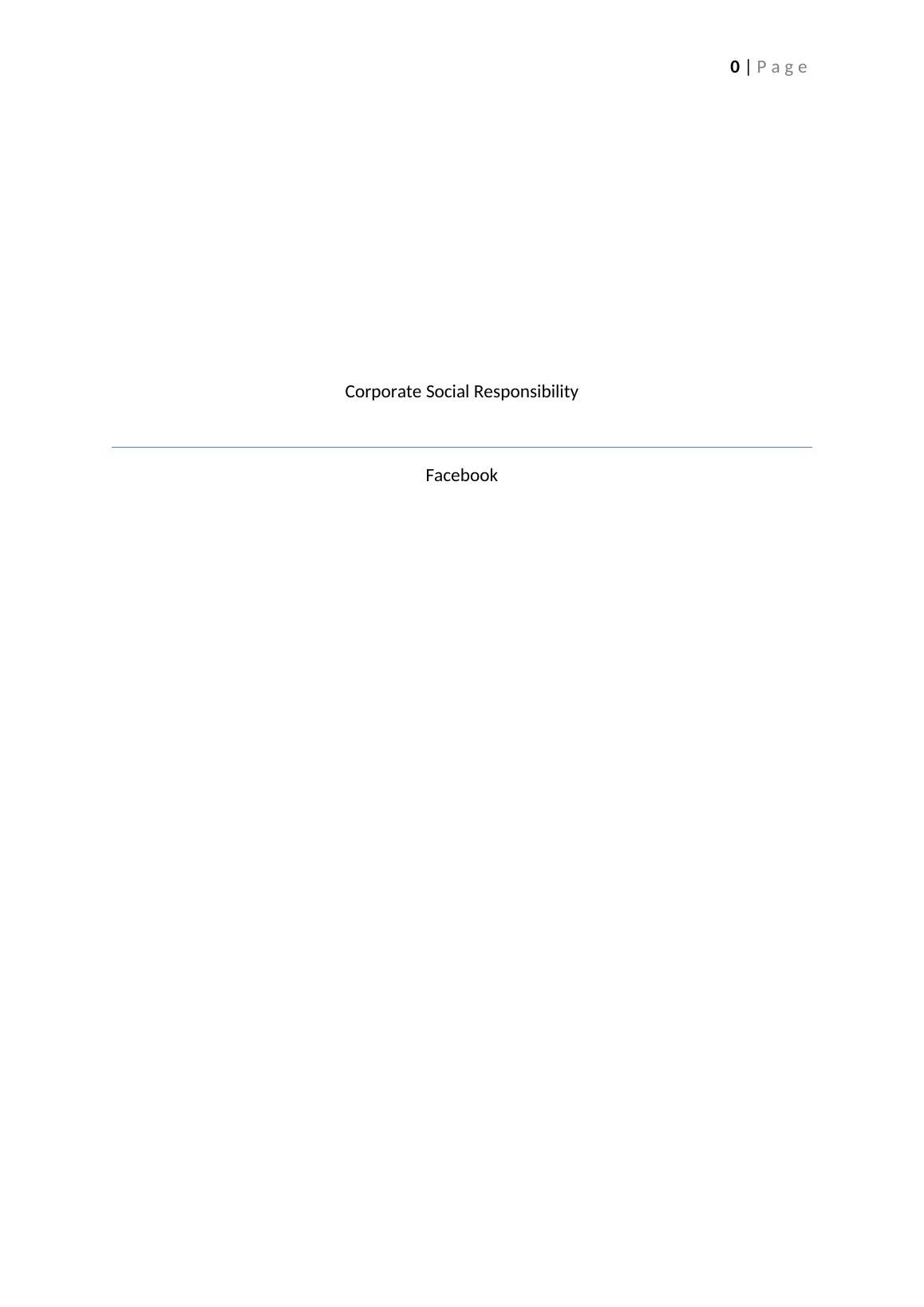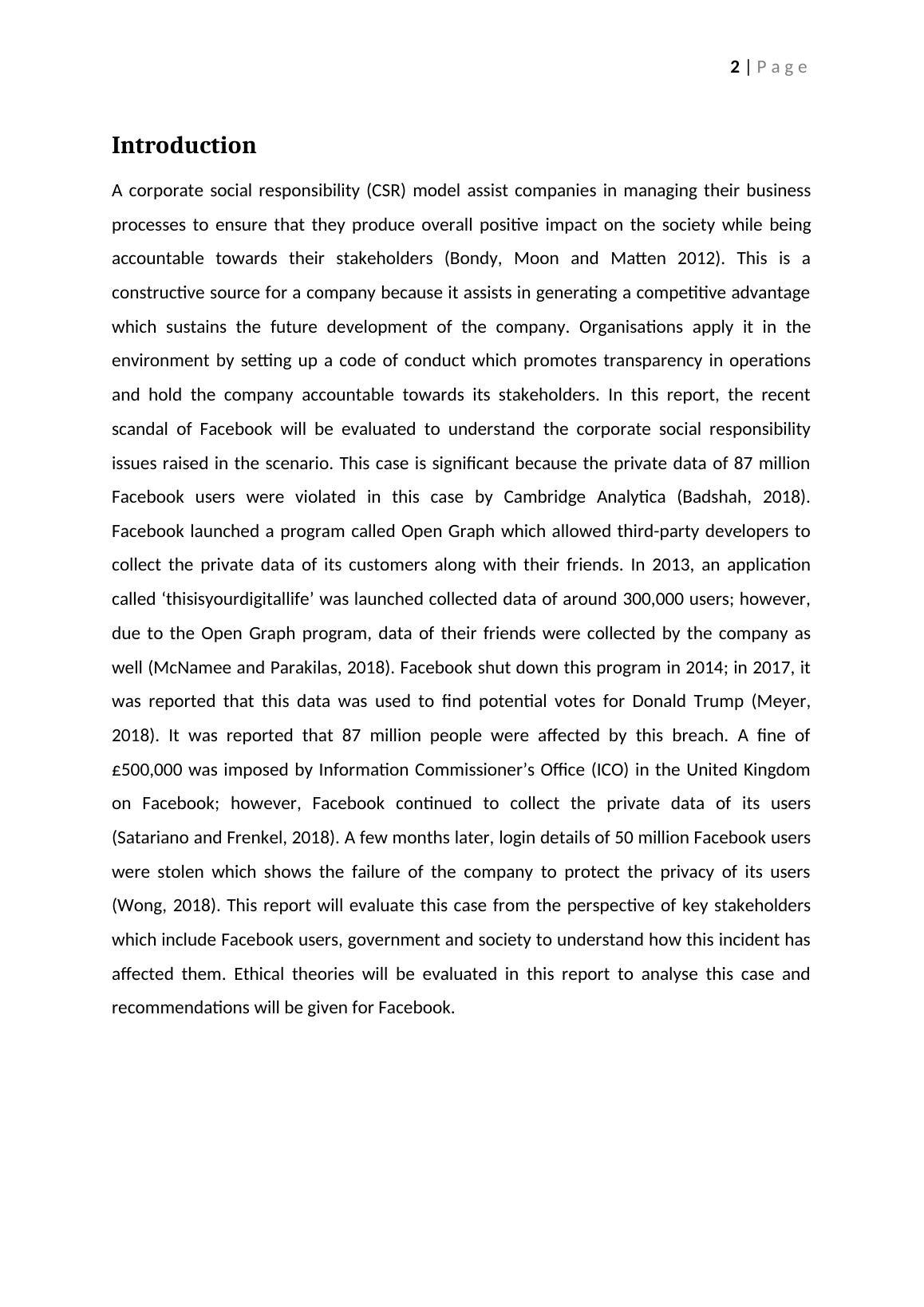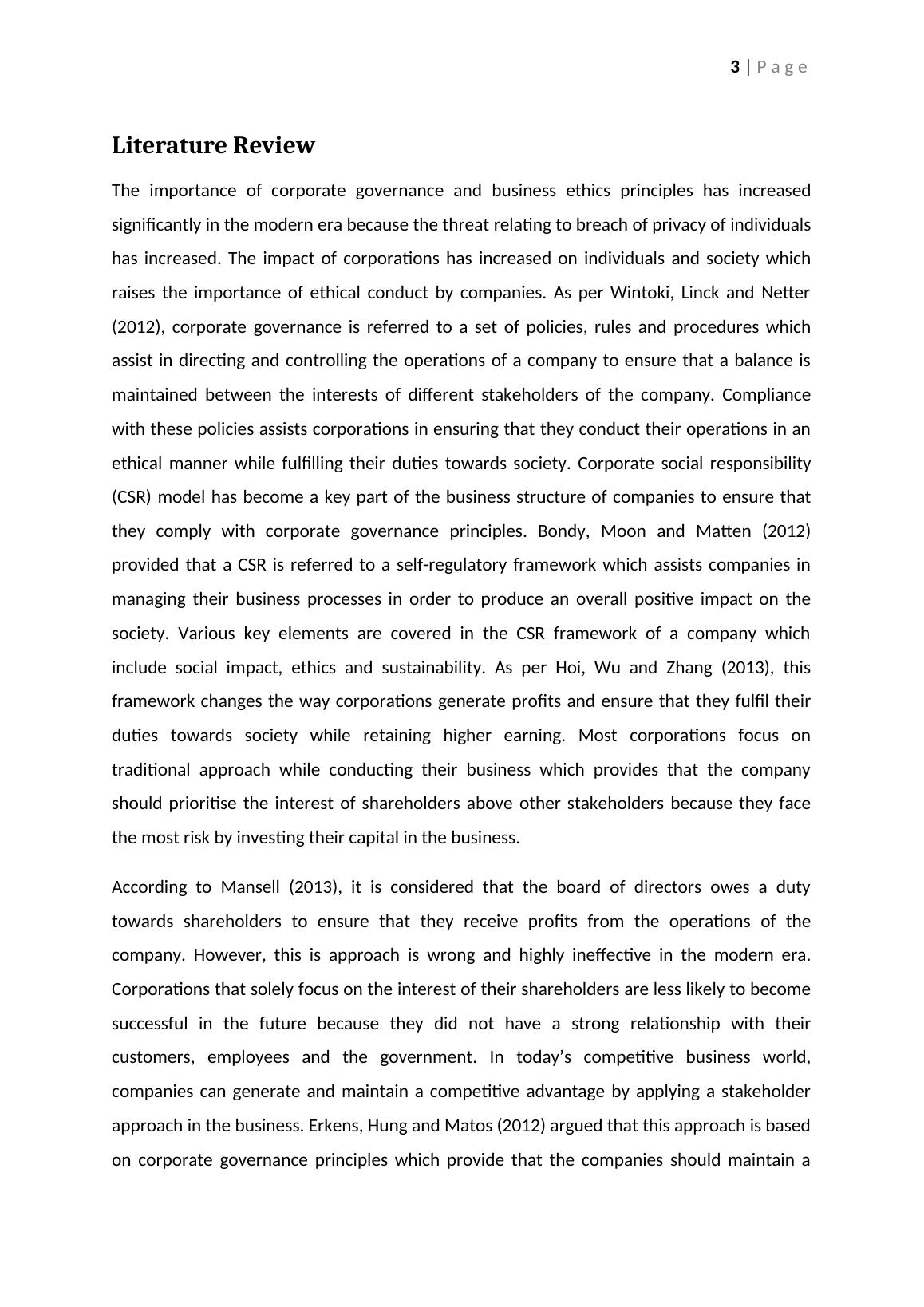Corporate Social Responsibility Issues Raised by Cambridge Analytica Scandal at Facebook
You are required to write an individual 2,000 word reflective account and career development / management plan, demonstrating knowledge / research of a specific sector and role.
14 Pages4250 Words281 Views
Added on 2023-06-03
About This Document
The Cambridge Analytica scandal at Facebook has raised significant corporate social responsibility issues, including the violation of privacy of 87 million users and the failure of the company to protect their data. The stakeholders affected include Facebook users, government, and society. Ethical theories such as Utilitarianism and Deontology are evaluated, and recommendations are provided for Facebook.
Corporate Social Responsibility Issues Raised by Cambridge Analytica Scandal at Facebook
You are required to write an individual 2,000 word reflective account and career development / management plan, demonstrating knowledge / research of a specific sector and role.
Added on 2023-06-03
ShareRelated Documents
End of preview
Want to access all the pages? Upload your documents or become a member.
Cambridge Analytica Scandal: An Ethical and Legal Analysis
|10
|3090
|51
Professional Practice and Ethics
|10
|2157
|35
Business Ethics .
|22
|5738
|346
Facebook Sued Over Cambridge Analytica Data Leak: An Ethical Analysis
|11
|2664
|314
Facebook Data Mining Scandal: An Ethical Perspective
|12
|2573
|430
Data violation of Facebook Users - Comparative Business Ethics & Social Responsibility
|9
|1493
|181




